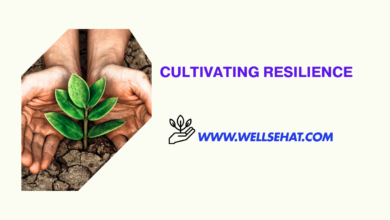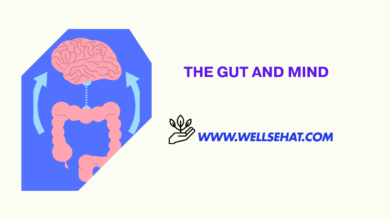The Importance of Self-Compassion Nurturing Your Mental Well-Being
In today’s world, where everything is changing rapidly, it is quite common to hear oneself bad-mouthed. Humor takes the harsh lights off our perceived inadequacies and breaks the tension whenever we begin to stress ourselves too much. How effective would it be to begin to change the internal monologue into one with a more positive outlook? Welcome to Self-compassion – the method that has the potential to give your mental health a boost.
Understanding Self-Compassion
It is a kind of radical acceptance that the human being should apply to himself/herself as he/she applies it to a dear friend. It consists of three main components:
Self-Kindness: Stop using self-criticism when things go wrong, and switch to self-compassion. Remember that everybody makes mistakes and it is perfectly normal.
Common Humanity: Accept that such situations are not unique to you only. It is natural for us to face problems in life, and admitting this fact can help us to feel less alone rather than abandoned.
Mindfulness: It simply means you are able to umbrella and watch your thoughts and feelings happen without necessarily having to label them as bad or good. It assists in accepting the problems in your life without enshrining a problem.
The Science Behind Self-Compassion
Dr. Kristin Neff is one of the most prominent psychologists who study the effects of self-compassion on human well-being. Research shows that self-kindness is related to lesser severity of anxiety, depression, and stress. When we show compassion towards the self, then we engage the restorative response while, at the same reducing threat responses that come with feelings of failure.
Also, self-compassion strengthens the defenses against negative emotions. It is the reason compassionate people do break down and get upset but they are not stuck in those feelings of defeat and failure.
The relation between self-compassion and self-esteem: Their differences
Whereas self-esteem has a positive self-appraisal theme, thereby comparing one with the other, self-compass clearly deals with an appreciation of one’s shortcomings. This distinction is crucial: self-esteem depends on attainment or comparisons, and self-compassion is a steady presence of kindness towards the self.
The Advantages of Self-Care
Cross-sectional as well as longitudinal research suggests that self-compassion is positively related to higher levels of emotional intelligence and psychological health as well as lower levels of anxiety, depression, and stress. With self-compassionate writing, you feel more open to trying and taking risks because self-care is encouraged. You do not focus on the fear of failure but rather embrace it in practicing that a failure is not a stop sign but a number on the scoreboard.
Read More… The Impact of Sleep on Mental Health Prioritizing Rest for Well-Being
How to Develop Self-Compassion
Here are some practical ways to cultivate self-compassion in your daily life:
Practice Positive Self-Talk: Replace negative thoughts with positive thoughts as a positive affirmation. It’s much healthier than saying, “I always screw up.” Consider this: “I’m trying my best, and that is okay to get it wrong sometimes.”
Write a Self-Compassion Letter: When you have time, and you’re feeling a bit down, get a piece of paper and pen, and write a letter of encouragement to yourself. This exercise may be of help not only to change your point of view but to gain some comfort as well.
Engage in Mindfulness Meditation: Meditation strategies can be implemented for the purpose of becoming more perceptive of what you are thinking or feeling.
Surround Yourself with Positivity: Surround yourself with positive individuals who believe in you and in what you’re doing. Optimization of the environment can help to promote self-compassion and foster improved thinking.
Embracing the Journey
It has to be noted that developing self-compassion is one of life’s long processes. Don’t expect an immediate change in the way you think and feel about others and yourself. Over time when you start practicing self-compassion, which means being kind to oneself you will over time see an improvement in your emotional state making it easier to cope with hard times in everyday life.





